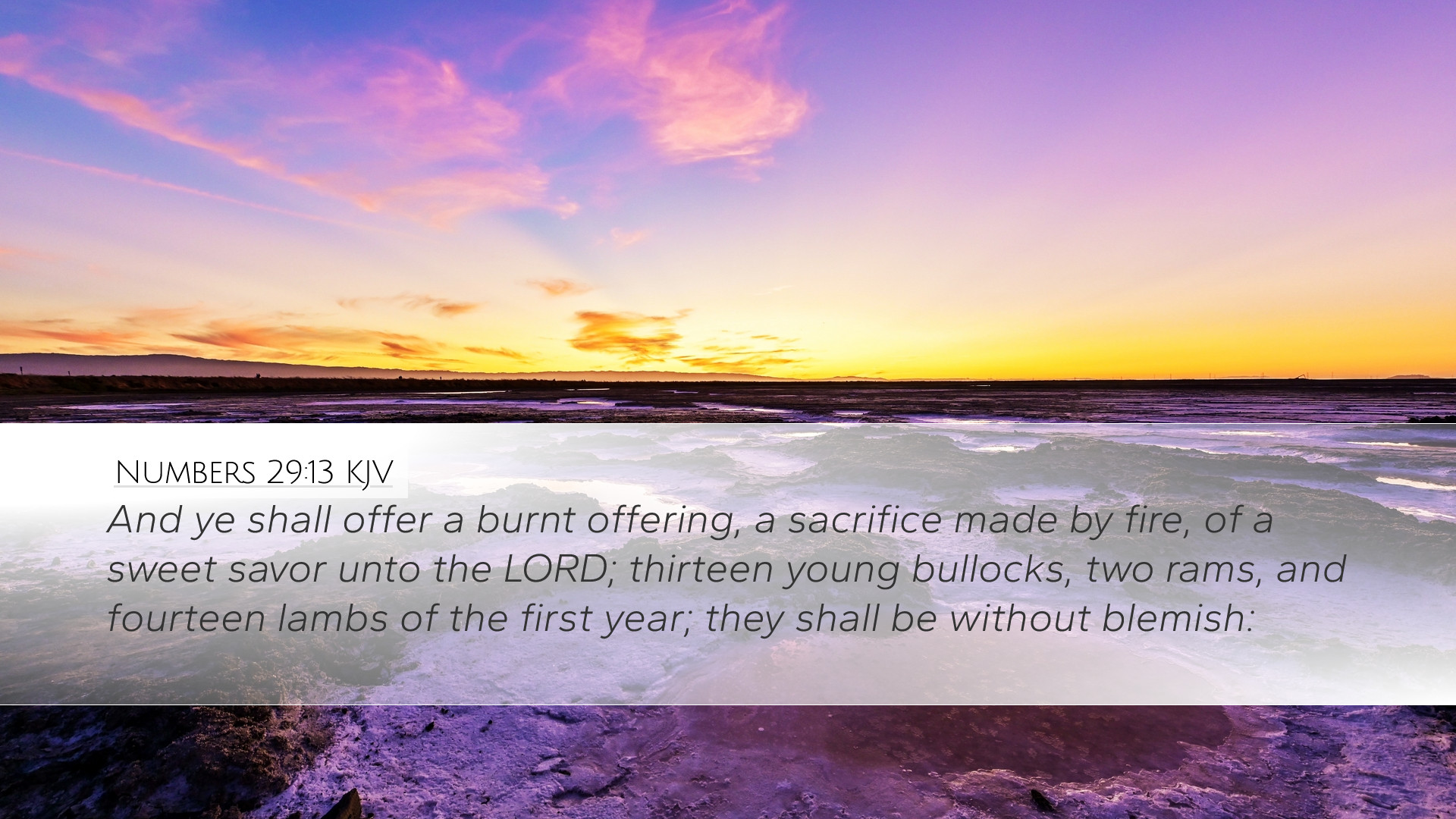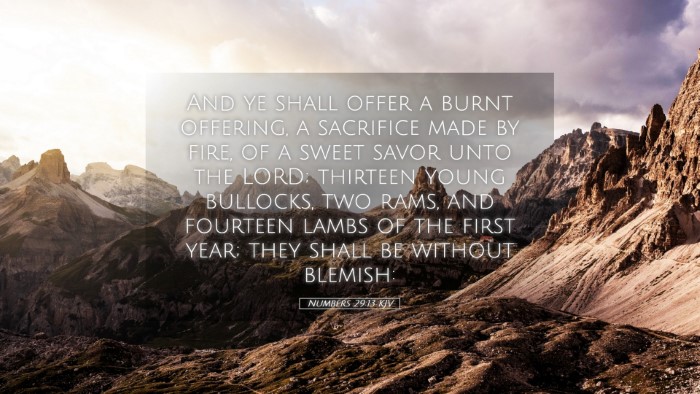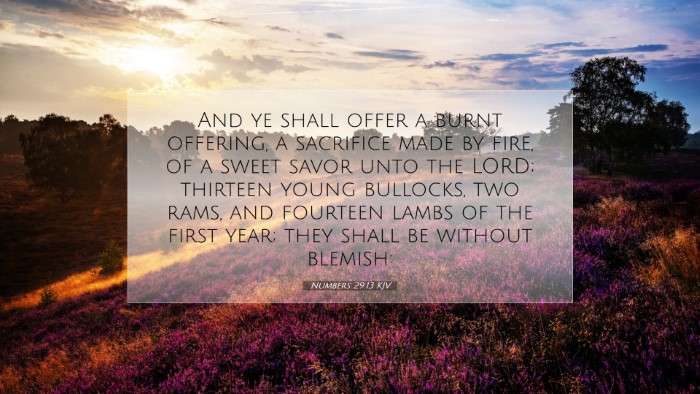Bible Commentary on Numbers 29:13
Verse Context: Numbers 29:13 states, "And ye shall offer a burnt offering, a sacrifice made by fire, of a sweet savour unto the Lord; thirteen young bullocks, two rams, and fourteen lambs of the first year; they shall be without blemish." This verse highlights the specific offerings required during the Feast of Tabernacles, emphasizing the importance of worship and sacrifice in the Israelite community.
Exegesis and Theological Implications
Matthew Henry's Commentary: Henry emphasizes that the offerings prescribed here are significant as they represent devotion and gratitude to God during the solemnly celebrated Feast of Tabernacles. The numbers signify completeness and abundance, indicating that the Israelites brought forth their best to God, reflecting a heart of worship.
Albert Barnes' Notes: Barnes provides insight into the ritualistic nature of these offerings. The term "sweet savour" is indicative of God's acceptance of these sacrifices. Each type of offering serves a unique purpose, with bullocks representing strength and leadership, rams signifying submission, and lambs reflecting innocence. Together, the offerings show a holistic approach to worship, encompassing the various attributes of the community.
Adam Clarke's Commentary: Clarke focuses on the liturgical aspects, noting that the Feast of Tabernacles was a time of rejoicing and thankfulness for the harvest. The large quantity of offerings (thirteen bullocks, two rams, and fourteen lambs) illustrates the joy of abundance. Additionally, Clarke highlights the symbolism; such offerings were a communal act reinforcing unity among the Israelites, as they collectively sought God’s favor.
Comprehensive Analysis of the Offerings
- Bullocks: Thirteen bullocks represent the strength and provision of God. Bullocks, being large and powerful animals, signify the leadership role of God amongst His people.
- Rams: The two rams symbolize submission. Their duality may reflect both personal and communal aspects of submission to God's will.
- Lambs: Fourteen lambs suggest innocence and purity. Lambs are gentle creatures, easily related to the notion of sacrifice and atonement in the greater narrative of scripture.
Jewish Festival Observances
The Feast of Tabernacles, or Sukkot, was celebrated by those in ancient Israel as a remembrance of God’s provision during the Exodus. Each offering described in Numbers 29:13 played a crucial role in the culmination of this festival, encouraging worshippers to reflect deeply on their dependence on God's grace.
According to the historical context, these sacrifices during Sukkot served to remind the people of their journey through the wilderness and the transitions that were part of their covenant with God. The sacredness of the act is reflected in the detailed prescriptions, underscoring their significance in maintaining a right relationship with God.
Theological Significance for Today
The detailed instructions regarding sacrifices in Numbers 29:13 extend to contemporary worship practices. These passages remind modern believers of God’s greatness and their need for humility and repentance. In the light of Christ's sacrifice, many theologians interpret these burnt offerings as foreshadowing the ultimate atonement provided by Jesus.
Pastors and scholars may find that while the specific requirements may not bind believers today, the spirit of these offerings—sacrificial love, dedication to God, and communal worship—remains utterly relevant. It calls us to consider how we bring our best to God and our commitment to worship Him in spirit and truth (John 4:24).
Reflection and Application
This verse encourages reflection on how we approach God in worship. The Israelites’ commitment to sacrificial offerings prompts us to consider the sacrifices we are willing to make in our own lives. How can we present ourselves as living sacrifices, holy and pleasing to God (Romans 12:1)?
Key Questions for Further Study:
- What does it mean to offer our best to God today?
- How can the communal aspects of worship informed by Numbers 29:13 translate into our church practices?
- In what ways does understanding the sacrificial system of the Old Testament enhance our appreciation for the New Testament's revelations about Jesus Christ?


